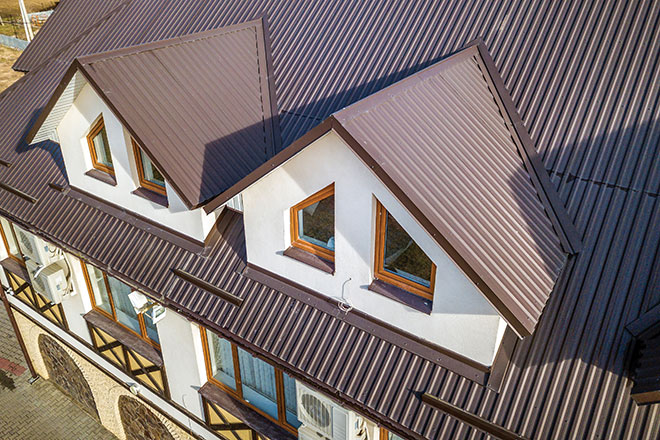Spring brings many opportunities to enjoy the warm weather ahead. However, spring can also mean the beginning of severe weather events. The month of May is considered an active severe weather month.
After a severe weather event has passed, homeowners are tasked with assessing and repairing the damage. According to a recent COUNTRY Financial Security Index, one in four homeowners has experienced property damage due to severe weather or natural disasters, an increase from one in five last year. Also, three in four homeowners say they would like to take more steps to prepare for severe weather events or natural disasters.
“Severe weather can happen anytime, anywhere, and we have already seen its devastating effects in 2023,” says Kelvin Schill, senior vice president of property and casualty at COUNTRY Financial. “Spring severe weather is not yet behind us. And although we can’t control the weather, homeowners should be proactive and take steps to protect their homes and valuables from severe weather damage.”
Don’t be caught unaware during a storm or other natural disaster. Check out these five ways you can prepare your home for severe weather this spring.
CREATE AN INVENTORY
In the event of a disaster, it’s unlikely you’ll be able to remember all your possessions, making it difficult to accurately assess the damage and loss to your home. An up-to-date home inventory can help you settle insurance claims faster and restore your home.
While it may seem daunting to inventory all your possessions, it is a relatively simple process. According to the Insurance Information Institute, you should start by picking an easy spot — like your kitchen — and record your kitchen appliances. As you purchase new household items, get into the habit of recording them as you go and make sure to save your receipts.
SAVE FOR EMERGENCIES
Severe weather and natural disasters can happen at any time and can be costly, so it’s critical to have enough savings in your emergency funds. More than three in four homeowners (77%) say they have enough money to cover their home insurance deductible if they experience major home damage. However, many homeowners are not prepared for the cost of weather-related home damages.
According to the U.S. Department of Homeland Security, you should keep a small amount of cash in small bills at home in a safe place, such as a fire- and weather-proof safe. This will allow you to buy supplies, fuel and food in case a disaster makes using ATMs and credit cards impossible. Make sure to also review your home, health and life insurance policies, so you have enough to cover the deductibles.
PRIORITIZE HOME MAINTENANCE
While you can’t stop extreme weather events, you can maintain your home to reduce the impact. According to the CFSI, 23% of homeowners plan to perform more regular home maintenance in case of severe weather.
Regular home maintenance can help prevent damage to your home and potential home insurance claims. For example, by removing loose siding, broken shingles and dead tree limbs from your yard, you can reduce the chance of damage to your home from flying debris.
REVIEW YOUR HOME INSURANCE POLICY
Reviewing your home insurance policy is the best way to prepare for a weather-related emergency. Of the homeowners surveyed, 20% plan to review their home insurance policy and 12% want to increase their coverage to be better prepared for emergencies.
When reviewing your policy, check to see what it covers. It’s important to understand the type of coverage you have. For example, Actual Cash Value protection subtracts depreciation from the value of your home or belongings. However, Replacement Cost does not subtract for depreciation, so it’s based on today’s costs. In addition to your house, your insurance may cover sheds, fences, detached garages and other structures on your property, but you may need to add coverage for things like sump pump failure. This is also a time to inform your insurance agent of upgrades you have made to your home to make sure you’re covered.
UPGRADE YOUR HOME
Home improvement projects not only increase your home’s curb appeal, but they can also keep you safe in cases of severe weather. For example, you can replace your current windows with impact-resistant ones or install hurricane shutters.
During a storm, your roof is vulnerable to hail, water and debris damage. If you are replacing your roof, consider upgrading to a metal roofing system, which is known to be more durable and can sustain higher winds.
There may be cases of severe weather where you’ll need to shelter in place. The U.S. Department of Homeland Security recommends locking doors and windows, shutting air vents and turning off AC and heating systems. Head to the basement until the severe weather abates. If you don’t have a basement, head to an interior room, such as a bathroom, with few or no windows.
Learn more about what home insurance covers and find a home insurance agent near you at countryfinancial.com.
This article is courtesy of Brandpoint.

